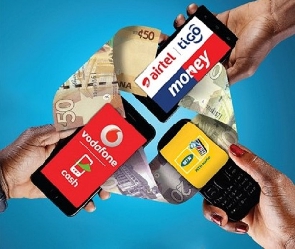Associate Professor of Development Economics and Programme Coordinator, Economic Policy Management at the Department of Economics, University of Ghana, Professor Ebo Turkson has criticised government’s decision to remove the GH¢100 threshold for the Electronic Transactions Levy (E-Levy) and the reduction of the levy to 1%.
The Finance Minister Ken Ofori-Atta on Thursday 24, November 2023, announced in the 2023 Budget Statement and Economic Policy that the levy which received widespread resistance from a section of the populace prior to its passage and post-implementation, was to be reduced to 1% in 2023 from the initial 1.5%. However, the cushion for the vulnerable which exempted the daily first GH¢100 transaction from the tax was removed.
“Review the E-Levy Act and more specifically, reduce the headline rate from 1.5% to 1% of the transaction value as well as removal of the daily threshold,” the Finance minister told parliament.
Speaking to Starr News’ Naa Dedei Tettey on the Starr Midday News, Professor Ebo Turkson said the reduction of the Levy to 1% is insufficient and will not help government’s quest to increase revenue domestically.
“We need the E-levy if at all, to be at a rate that everyone who used to use the MoMo before the E-Levy came up, will continue to use the MoMo and still pay that marginal levy. We need the volume to rake in the revenue. We don’t need the tax, raising the revenue. This is a product that people can easily do away with. So if you really want to collect revenue from a tax like that, your concentration should be on the volume and not on the tax rate”.
Prof. Turkson added that the removal of the daily first GH¢100 transaction threshold will leave the vulnerable worse off emphasising that the threshold should have rather been increased to cushion such people since the value of GH¢100 at the introduction of the e-levy has fast depreciated.
“So I am not too sure who advised the minister to reduce it to 1% and remove the threshold, because if anything at all, we should have increased the threshold. And this is the reason why; at the time the E-Levy was approved at the beginning of this year, the GH¢100 threshold could buy 10 loaves of bread. Now the GH¢100 threshold can buy only 5 loaves of bread. So if a poor person who was being GH¢100 to buy 10 loaves of bread is now buying 5 loaves of bread, and you think that threshold is for the poor, we should rather have increased the threshold from GH¢100 to GH¢200. To still support those who are doing those very little transactions that most likely are for people who are poor. So to take away the threshold and reduce the tax to 1% will not make any difference and this is what we have been telling the finance minister all this while.
According to Professor Turkson who is also an external member of the Bank of Ghana Monetary Policy Committee it would be better to further reduce the percentage of the tax to between 0.25% and 0.5% and the threshold increased to GH¢200.
“The E-Levy itself if you see it as a commodity has an elastic demand. Any good that has elastic demand you rather reduce the price and the volume gives you more revenue. When you don’t do that and you don’t provide incentives for people to go on to use the MoMo and say that look the cost of the e-levy should not deter us from using the MoMo, you are not going to get the revenue...0.25 to 0.5% and an increase in the threshold to GH¢200, I think would have made a difference”
He warned that the Finance Minister could miss his revenue targets if the current position was not given a second look.
“The minister of finance should go back to the drawing board to find out if the 1% and the removal of the threshold will assure him the revenue that he wants from the E-Levy. Otherwise, we will miss our revenue targets in 2023”.
Business News of Sunday, 27 November 2022
Source: starrfm.com.gh













